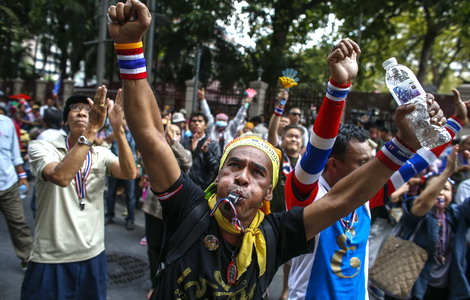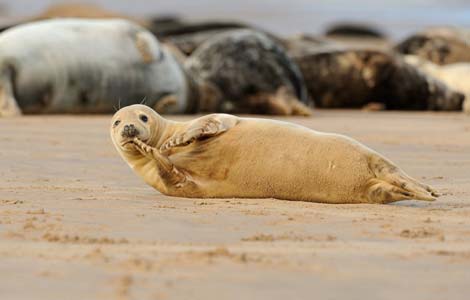Japan seeks bigger role for military
Updated: 2013-12-18 01:34
By Qin Jize and Pu Zhendong (China Daily)
|
||||||||
World community should be vigilant of Tokyo's actions: FM spokeswoman.
![Japan's Defence Minister Itsunori Onodera speaks at a news conference at a Defence Ministry in Tokyo December 17, 2013. Japan will boost its military spending in coming years, buying early-warning planes, beach-assault vehicles and troop-carrying aircraft, while seeking closer ties with Asian partners to counter China. [Photo/Agencies] Japan seeks bigger role for military](../../attachement/jpg/site181/20131218/180373d28c10141bf76211.jpg) |
|
Japan's Defence Minister Itsunori Onodera speaks at a news conference at a Defence Ministry in Tokyo December 17, 2013. Japan will boost its military spending in coming years, buying early-warning planes, beach-assault vehicles and troop-carrying aircraft, while seeking closer ties with Asian partners to counter China. [Photo/Agencies] |
The planned 5 percent increase over five years reverses a decade of decline and marks the clearest sign since Prime Minister Shinzo Abe took office a year ago that he wants a bigger military role for Japan.
The Cabinet approved a package of defense policies that include a national security strategy, a five-year military buildup and a 10-year defense guideline.
They call for stronger air and maritime surveillance capabilities and improved ability to defend far-flung islands through such steps as setting up a marine unit, buying surveillance drones and putting a unit of E-2C early-warning aircraft on Okinawa island in the south.
Japan will budget 23.97 trillion yen ($232.4 billion) over the coming five years for defense.
Citing China's growing military capabilities, Tokyo expressed concern through these policies over what it calls Beijing's attempts to change the status quo, including the recent designation of an air defense identification zone in the East China Sea.
Observers said the latest steps have pushed Japan further away from its pacifist Constitution and target China as an imaginary enemy.
Foreign Ministry spokeswomen Hua Chunying urged Japan on Tuesday to play a constructive role in maintaining regional peace and stability.
Considering Japan's negative activities on historical issues, China and the international community have to be highly watchful and alert about Japan's actions, Hua said when asked to comment on Japan's defense policy package.
In the security strategy, Japan pledged to seek more "proactive" roles for its military force abroad and to set new guidelines on arms exports, signaling a major shift from its previous restrictive policy.
"We urge Japan to face and sincerely review its history, follow the momentum of peaceful development and respect regional countries' fair and reasonable security concerns," Hua said.
Gao Hong, deputy director of the Institute of Japanese Studies at the Chinese Academy of Social Sciences, said Abe's latest move aims to convey the message that Japan's security environment is under unprecedented pressure from China. He said Japan is seeking regional domination and a confrontation with China under Abe's rein.
"Through revision of the Constitution and related legislation, Abe aims to transform Japan into a country that can wage wars," Gao said.
Japan wants to ally with countries that have disputes with China and therefore create a security environment in Tokyo's favor, he said.
However, tensions between the world's second- and third-largest economies would likely drag in the largest, the US, which is treaty-bound to protect Japan in a war.
Feng Zhaokui, a Japanese studies researcher at the Chinese Academy of Social Sciences, said as part of the US rebalancing in the Asia-Pacific, Japan's reinforcement of its defense force conforms to the US strategic interest in the region. "In fact the sustenance of the US-Japan alliance hinges on the perceived threat from China," Feng said. "Tensions between Beijing and Tokyo give Washington an excuse to beef up military presence in the region."
Lyu Yaodong, director of the Japanese diplomacy department at the Institute of Japan Studies under the Chinese Academy of Social Sciences, said the United States wields deep influence on Japan's defense policy.
But the US does not want to see Japan go too far, Lyu said.
Washington will benefit from Japan's large-sum arms purchase because the United States is world's largest arms exporter, he added.
Agencies and Cai Hong in Tokyo, Mo Jingxi in Beijing contributed to this story.
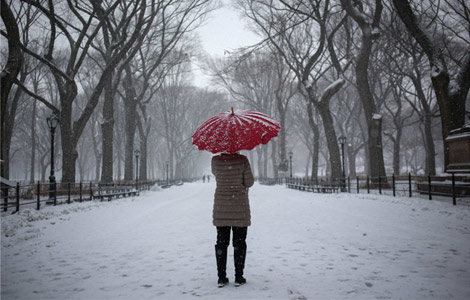
 Snow storm wallops NE USA
Snow storm wallops NE USA Russia to bail out Ukraine for $15 billion
Russia to bail out Ukraine for $15 billion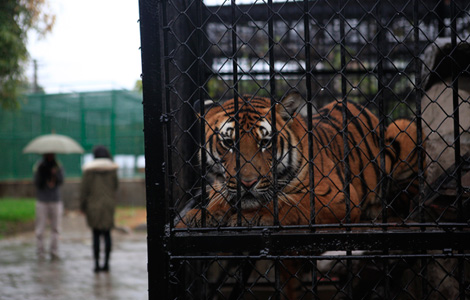
 Fatal tiger attack 'points to flaws in zoo management'
Fatal tiger attack 'points to flaws in zoo management'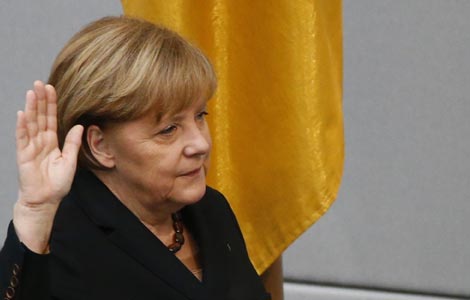
 Merkel sworn in as chancellor for a third term
Merkel sworn in as chancellor for a third term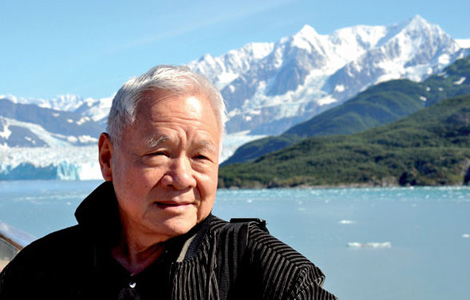
 Life in poetry
Life in poetry
 US first lady visits children in medical center
US first lady visits children in medical center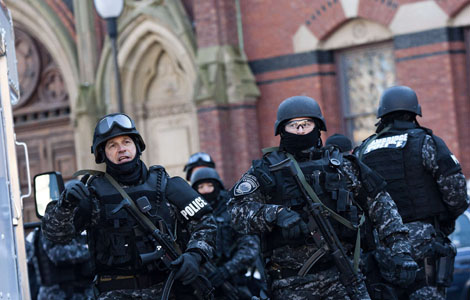
 Harvard reopens after bomb scare
Harvard reopens after bomb scare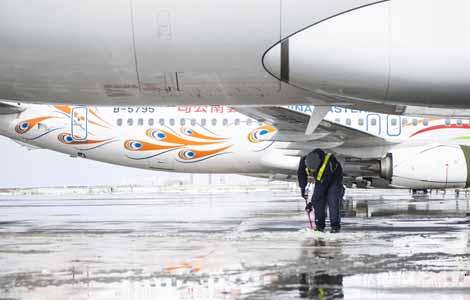
 Snowstorms cause chaos for travelers in Yunnan
Snowstorms cause chaos for travelers in Yunnan
Most Viewed
Editor's Picks

|

|

|

|

|

|
Today's Top News
Warship encounter handled effectively
Obama rated low on domestic issues
Vast deposits of 'flammable ice' found
Russia to bail out Ukraine for $15 billion
System for organ donors test
Luxury market cooling down
Court to issue guide on private loan cases
China, US urged to lead climate change fight
US Weekly

|

|


